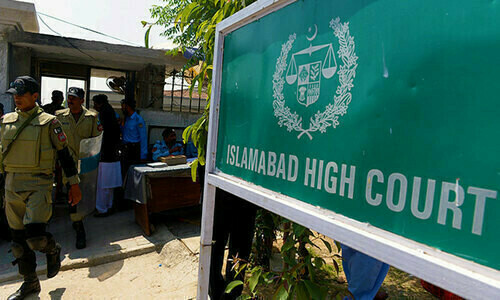ISLAMABAD, Jan 2: The Indus River System Authority (Irsa) stopped on Sunday water releases from Tarbela on an emergency basis, owing to technical constraints at Chashma and Sukkur barrages as a result of heavy river flows downstream Tarbela, it is learnt.
Sources in Irsa told Dawn that an emergency situation had emerged because of about 30,000 cusecs flows in river Indus at Tarbela, 26,000 cusecs in Kabul river which joins Indus downstream Tarbela, 38,000 cusecs in Chenab river and 26,000 cusecs in Jhelum river.
The sources said that outflows from Tarbela and increased flows in Kabul river and other tributaries resulted in the filling of Chashma barrage to its maximum level of 644.30 feet on Saturday night and there was no room for additional storage at the barrage.
A meeting presided over by the minister for water and power last week had decided to release 1,500 cusecs from the Tarbela dam to store it at the Chashma barrage to generate 475mw of electricity to avoid power load shedding.
The sources said that Wapda had been requested to draw water from Tarbela only as a last option for power generation so that a maximum quantity of water could be saved for irrigation in the late Rabi season. However, it could draw up to 1,500 cusecs, the sources added.
Water flows downstream Chashma stood at 31,000 cusecs against the 10,000 cusecs requirement of Sindh and Balochistan. As a result, Irsa officials held an emergency meeting on Sunday to take the unusual decision to bring down releases from Tarbela to zero.
The sources said that about 31,000 cusecs flow downstream Chashma could have caused suspension of the ongoing rehabilitation work at the Sukkur Barrage. Irsa, therefore, decided to release 10,000 cusecs from Taunsa barrage for Sindh and Balochistan but diverted remaining 21,000 cusecs to Chashma-Jhelum Link Canal and onward to Punjnad.
Through this route, water released from Chashma would take 17-18 more days to reach Sukkur Barrage and would allow engineers to complete rehabilitation work at the barrage on an emergency basis.
The sources said that if Wapda adhered to the Irsa decision and did not draw water for power generation, the overall water shortage would fall significantly from the earlier estimate of 47 per cent during the Rabi season.
However, flows of Kabul river would continue to go down from Chashma barrage because it has been completely filled and would not be accounted for in provincial shares and 'would be treated as a loss' because provinces have already announced their canal closures for the time being, the sources explained.













































Dear visitor, the comments section is undergoing an overhaul and will return soon.